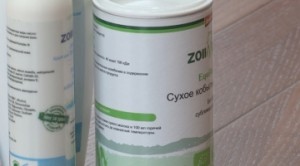 ASTANA – A pilot project using German technology to produce a version of the traditional Kazakh mare’s milk drink kumyss will be launched next year in the village of Osakarovka in the Karaganda region.
ASTANA – A pilot project using German technology to produce a version of the traditional Kazakh mare’s milk drink kumyss will be launched next year in the village of Osakarovka in the Karaganda region.
Entrepreneurs from Karaganda visited German facilities last year to become familiar with the technology of producing milk powder. Production there was first launched almost 20 years ago. The German enterprise is ready to share all the necessary equipment and technology to commence manufacturing the product in Kazakhstan.
“There is no potential to increase production in Germany. They already have 200 horses, but, because of the lack of space, the animals can only be kept in horseboxes, which results in enormous expenses faced by the producers to buy fodder. In Kazakhstan, on the contrary, we have a lot of green pastures. According to the calculations made by German entrepreneurs, it would be profitable for them to import milk powder from Kazakhstan,” said Balgat Zhumkin, vice-manager of Eurasia Invest Ltd.
According to producers, dry kumyss can be stored for up to a year whereas fresh horse milk can only be kept safely for a month. It is also noteworthy that all the essential properties are preserved in the powdered milk product.
Production in the Karaganda region will be the first of its kind in the country, with the manufacturing facilities located 9.5 kilometres from Osakarovka.
Currently under construction, the pilot scheme is set to produce 10 thousand tons of powdered horse milk in 2015 utilising 25,000 hectares (61,776 acres) of pasture accommodating 272 horses. Capacity will be increased in the future.
Preliminary calculations put the cost of 1 kilogramme of powdered horse milk at 20,000 tenge (US$110) against the current European price of 200 euro (50,000 tenge/US$276) per kilogramme.
“This milk is a very effective dietary ingredient for those who have cardiovascular diseases and hyposomnia. It can even help prevent cancer. Horse milk can be used to improve the well-being of the population of the country,” Sharmanov explained.
The initiative is being supported by the president of the Kazakhstan Academy of Nutrition, Toregeldy Sharmanov.
